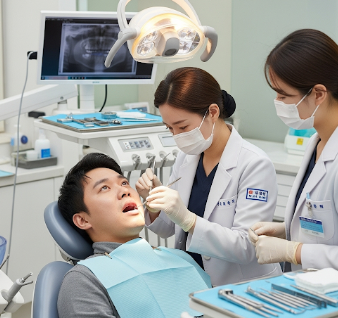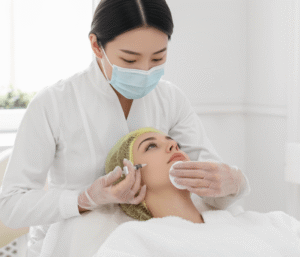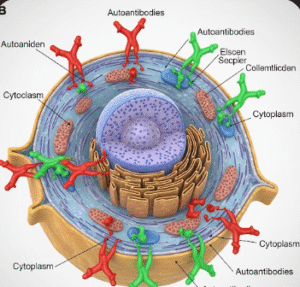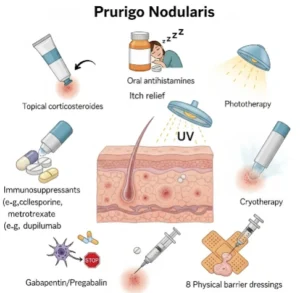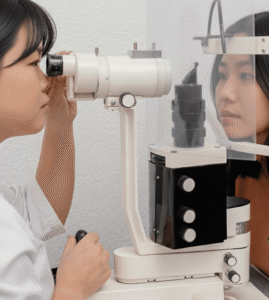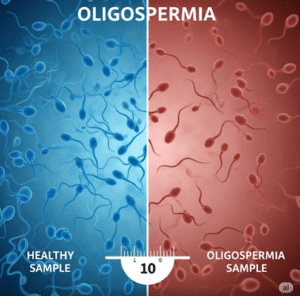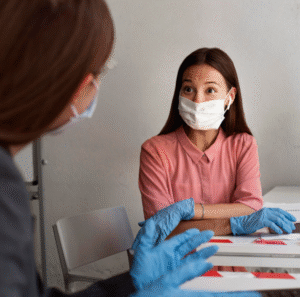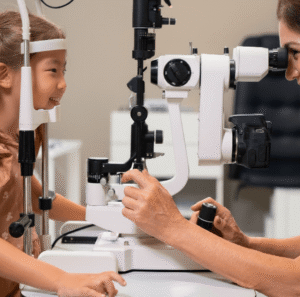Overview
Dental procedures encompass a wide range of treatments aimed at maintaining oral health, correcting dental problems, and enhancing aesthetics. They include preventive, restorative, cosmetic, and surgical procedures designed for patients of all ages.
In South Korea, dental care is delivered in highly advanced clinics and hospitals, offering modern technology, expert dentists, and high-quality materials. Patients benefit from precise diagnostics, minimally invasive techniques, and international-standard hygiene protocols.
What are Dental Procedures?
Dental procedures cover treatments addressing oral hygiene, teeth alignment, tooth damage, gum disease, and cosmetic improvement. These procedures can be broadly categorized as:
- Preventive procedures: Dental cleanings, fluoride treatments, sealants
- Restorative procedures: Fillings, crowns, bridges, root canal therapy
- Cosmetic procedures: Teeth whitening, veneers, orthodontics
- Surgical procedures: Tooth extraction, implants, periodontal surgery
Purpose:
- Prevent dental diseases and decay
- Restore function and aesthetics
- Improve bite and alignment
- Maintain overall oral and systemic health
What are the Benefits?
Dental procedures provide numerous therapeutic, functional, and aesthetic benefits:
✔ Prevent tooth decay and gum disease.
✔ Restore damaged or missing teeth.
✔ Improve oral function, including chewing and speaking.
✔ Enhance appearance and confidence.
✔ Support long-term dental and overall health.
Procedure Details
1) How should I prepare for Dental Procedures?
- Dental evaluation: Comprehensive oral examination, X-rays, and digital scans if needed
- Medical history: Inform the dentist about allergies, medications, or systemic conditions
- Oral hygiene: Brush, floss, and follow pre-procedure guidelines
- Consent and education: Understand procedure type, process, expected outcomes, and aftercare
Korean dental clinics provide personalized treatment plans, digital simulations, and patient education for optimal comfort and results.
2) What happens during Dental Procedures?
- Preventive procedures: Cleaning, polishing, fluoride application, and sealant placement
- Restorative procedures: Decay removal, filling, crown preparation, bridge placement, or implant surgery
- Cosmetic procedures: Tooth whitening, veneers, orthodontic alignment
- Surgical procedures: Tooth extraction, bone grafting, periodontal surgery, or implant placement
Procedure duration: Varies depending on type; 10 minutes for sealants to several hours for complex surgeries
South Korean clinics use digital dentistry, laser tools, CAD/CAM systems, and high-quality materials to enhance precision, reduce discomfort, and ensure long-lasting results.
3) What happens after Dental Procedures?
- Immediate: Mild sensitivity, swelling, or discomfort may occur
- Oral hygiene: Maintain brushing, flossing, and care around treated areas
- Follow-up: Routine dental visits to monitor healing, adjustments, or maintenance
- Recovery: Most patients resume normal activities quickly; complex procedures may require longer recovery
Risks / Benefits
Potential Risks:
- ➤ Pain, swelling, or sensitivity
- ➤ Infection or inflammation
- ➤ Material failure or prosthetic complications
- ➤ Allergic reactions to dental materials (rare)
- ➤ Relapse or incomplete correction in orthodontics
Major Benefits:
- ✔ Prevents tooth decay and periodontal disease
- ✔ Restores dental function and aesthetics
- ✔ Durable and minimally invasive with modern techniques
- ✔ Improves confidence and oral hygiene
- ✔ Reduces need for more invasive future treatments
Recovery and Outlook
- Immediate: Mild discomfort, sensitivity, or swelling for some procedures
- 1–2 weeks: Healing of soft tissues and adjustment to restorations or appliances
- Long-term: Routine dental check-ups and preventive care ensure longevity and oral health
- Maintenance: Good oral hygiene, regular professional cleaning, and following dentist instructions ensure the durability of results
South Korea’s dental centers provide structured post-procedure care, follow-up reminders, and patient education to maximize treatment effectiveness.
When To Call the Dentist
Contact your dentist if you notice:
- ➤ Persistent or worsening pain
- ➤ Swelling, bleeding, or signs of infection
- ➤ Dislodged or damaged restoration or appliance
- ➤ Difficulty chewing, speaking, or performing oral functions
- ➤ Unusual sensitivity or allergic reactions
Best Korea Option / Process
South Korea offers world-class dental procedure services due to:
- Experienced dentists and specialists in all dental fields
- Advanced diagnostic tools, materials, and techniques
- Minimally invasive, precise, and patient-centered care
- Comprehensive preventive, restorative, cosmetic, and surgical services
- International patient support including consultation, appointment scheduling, and follow-up
- High success rates and patient satisfaction
Top hospitals and dental clinics for dental procedures in Korea:
- Samsung Medical Center, Seoul – Comprehensive Dental & Oral Health Services
- Asan Medical Center, Seoul – Advanced Dental Care and Prosthodontics
- Severance Hospital (Yonsei University Health System) – Dental & Oral Surgery
- Seoul National University Dental Hospital – Restorative, Cosmetic & Preventive Dentistry

